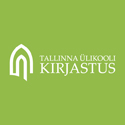Tõlkekirjanduse vahendamisest ja vastuvõtust Eestis aastatel 1990–2000 saksakeelse kirjanduse näitel [Mediation and reception of translated literature in Estonia between 1990–2000 with reference to German literature]
Abstract
Ülevaade. Artiklis võetakse vaatluse alla saksakeelse tõlkekirjanduse olu kord Eestis aastatel 1990–2000 ning püütakse arutleda selle üle, kui palju aitavad tõlkija, tõlke kommenteerija, kirjastaja, lugeja ja tõlke arvustaja kaasa tõlketeksti spetsiifika hoidmisele. Lisaks vaadeldakse, kuidas muu tus saksakeelse kirjanduse kirjastamine, vahendamine ja vastuvõtt Eestis pärast taasiseseisvumist, kui riik pööras pilgu pigem angloameerika kultuuriruumi suunas.
Võtmesõnad: tõlkekirjandus, retseptsioon, saksakeelne kirjandus, kirjas tamine
Abstract. In 1991, when Estonia regained its independence, the situation in the translation market changed dramatically. The number of translations rose rapidly, the conventional translation methods were changed, and the translated books of fiction acquired a central position in the system of Estonian culture as well as in the landscape of Estonian literature. Trans lations became a part of the Estonian literature, and they were often seen as original texts. At the same time translations tended to lose their own identity as translated texts.
The aim of this article is to find out whether the social and cultural systems of the target culture (translators, publishers, critics) were sup porting literary translations as such, since they involved specific type of texts, representing rather the source culture than the target culture, yet becoming a part of the literature of the target culture. The situation of the publishing houses in Estonia between 1990–2000 and the importance of translations, particularly German translations over the mentioned period is analysed and translation criticism of the translated works from German into Estonian between 1990–2000 in the Estonian press is discussed.
Finally, it could be said that changes in the Estonian social and cul tural system 1990–2000 gave a boost to new topics in literature. The posi tion of translated literature was significant, taking the central position in the Estonian literary polysystem and acquired partly the role of the orig inal Estonian literature. It is also important to mention that during the discussed period translation criticism in the Estonian press and literary journals was mainly replaced by general literary criticism.
Keywords: translated literature, reception, German literature, publishing
Full Text:
PDFDOI: https://doi.org/10.22601/PET.2021.06.03
Refbacks
- There are currently no refbacks.
Published by / Kirjastaja:

ISSN 2504-6616 (print/trükis)
ISSN 2504-6624 (online/võrguväljaanne)
